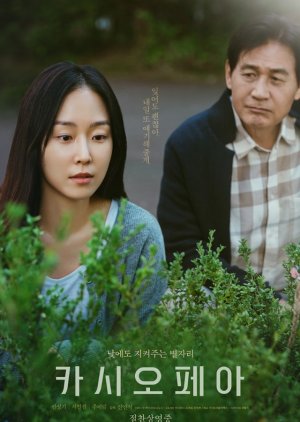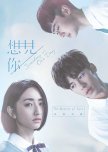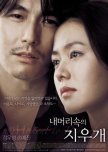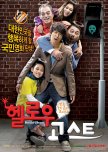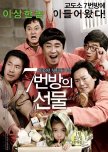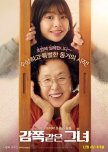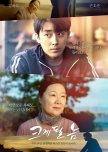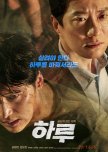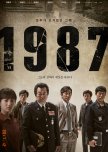
unterwegsimkoreanischenD
23 personnes ont trouvé cette critique utile
Cette critique peut contenir des spoilers
Father + daughter challenged in the face of presenile Alzheimer
Cassiopeia has already won the Korean Association of Film Critics Awards 2022.I would recommend it, too.
The KMovie Cassiopeia tackles an unpleasent subject: presenile Alzheimer's dementia. In an increasingly aging society, dementia will become more and more present and more common within the personal environment of all of us. Most cases occur at ages 65+. However, a small percentage is also affected at a younger age. This can even occur very early due to hereditary factors - as documented sensitively and unforgettable in the KMovie "A Moment to Remember". But this can also have many other causes. Dementia is a shocking diagnosis at any age, because with your eyes wide open, your own life inevitably slips away... faster than you imagine, you will no longer be able to recognize your own children, partners, friends or parents, while also the bodily functions will do their own thing.
"Cassiopeia" is about a woman in her 40s who is overwhelmed by presenile Alzheimer's dementia. However, the narration is slightly different than in "A Moment to Remember". "A Moment to Remember" captures the strong emotionality of the mental degeneration process practically from within - in touching scenes and sensitive relationship dynamics and tells the story of how memories in her head are erased as a painful loss for everyone involved. In "Cassiopeia", on the other hand, the audience follows the accumulating social moments in a comparatively objective manner, in which the exponentially progressing decay of the nerve cells is expressed - simply stating, so to speak. (Just as the protagonist initially presents herself as an objective, sober and rather sever person.) Emotionality is not dramaturgically staged in this KMovie, but results from the sum of soberly observed situations of individual loss of control and Su-jin's familiar world broken in two - one in which clarity still reigns and one in which everyone, even she herself is a stranger. From the emotionality thus involved - fear of failure, helplessness, shame, being at the mercy of others and much more - one cannot withdraw oneself. Rather, this emotionality develops an increasingly peculiar driving force (just as the protagonist's psychological/physical development process picks up speed). Eventually, the KMovie goes straight to the heart and makes people think.
In "A Moment to Remember" the focus was on the relationship dynamics with the beloved husband, here it is the portrait between daughter and father. In this case, the father tries to do better in old age what he could not do when he was younger, as he was not around.
In "A Moment to Remember" the protagonist is still at the very beginning of her young, promising life. In "Cassiopeia" Su-jin has achieved quite a lot: she is a mother, a successful lawyer, and also divorced. The daughter is about to move to her father in the USA. Significantly, the life of the protagonist, as it was up to now, ends in several respects with the departure of her daughter. It becomes difficult even for the star constellation Cassiopeia to give life perspective and orientation...
(By the way: the KMovie builds on a nice analogy between Cassiopeia and family. Both the star constellation pointing to the North Star and one's own family cannot help you, finding your path and your own way with life. Yet, we can rely on them if we got lost along the way: as some place to look out for/reach out for, regarding perspective/support).
Emotive. Especially by those often deliberatly soberly, calmly captured situations in which both the orderly and deformed worlds meet and finally merge. The helplessness and coldness of the social environment enfolds in all its unvarnished harshness - by its objective narrative style and camera perspective it is subtly thrown back at us. We are emotionally drawn into what is happening in two respects: regarding our empathy with Su-jin, which we cannot escape in the progress of the story, as well as regarding our identification with people/strangers Su-jin meets along the way - because that is what we are, too. How do WE actually deal with people who have obviously lost control of their lives or are about to lose it? Can WE stand this? Can WE lend a helping hand with this? Be of support? Even (or especially) if it's just a casual encounter on the street, an acquaintance in the neighborhood, or a colleague at work?
Cet avis était-il utile?

Cette critique peut contenir des spoilers
One of the best korean movies of 2022
This was an amazing movie.When i read the synopsis of this movie on dr*macool it only said " A story about dementia with father-daughter relationship.", so i thought the person with dementia would be the father, but that plot twist caught me off guard.
This movie tells a story about a working lawyer/ single mother who loves her daughter more than everything, later in the movie she sends her daughter to the US to be with her ex husband and right after that its when she discovers she has Alzheimer.
Its her father who helps her with everything that she needs but unfortunately, he struggles a lot doing so.
The most emotional part for me was when she was with her father in the car and she has a mental breakdown because she doesn't want to forget her daughter.
I also loved the ending scene which made me also cry buckets.
TW :
S*icide A*tempt
S*xual A*sult
Cet avis était-il utile?
who has dementia. It is a diagnosis that we need to understand
with a lot training. The use of different strategies and techniques
to help not only the patients but family members as well as the
carers who help look after them. We have to learn to be patient
and be thoughtful to their needs.
This movie even though it was fast pasted I thought the actors did a great job.
Cet avis était-il utile?

Alzheimer's disease closes all doors and exits. There is no escape.. unfortunately
The film seems rather rough in the sense that it neglects other contextual details to logically support the situation to give more weight, such as the origin of the father’s life. Su-jin’s relationship with her parents in the past Sujin’s marriage Gina’s life in America including solving problems in a concrete way at the end Instead, the film focuses on conveying Su Jin’s physical and mental suffering from Alzheimer’s. Squeeze the emotions of the audience in the most heartbreaking..Her father decided to move in with her. At the age when the child is young He continued to work abroad. let the child grow on his own Now your child is suffering from a serious disease that impairs his ability to live, remember, speak, and regulate his emotions. faecal control They all went back to being like children again. So he tried his best as a new father. This is the main content where the film will convey the relationship between father and daughter to the audience with warm and heartfelt appreciation. ‘Thinking about Dad’ come up immediately
Of course, the most powerful moment was the moment when his father intelligently took care of Su Jin. Based on his wisdom and calmness, he tries to encourage in all forms. Extend your child’s normal, independent life for as long as possible. and he was by her side as the disease progressed to such an extent that she lost her ability to live with it.
especially anyone who has had an experience with someone close to a loved one sick with this disease will understand each situation better. to the point where tears burst surely must be raised to the beauty of the craft This is Hyun Jin Who is your biggest fan? which should not be missed..
So why is the film called Cassiopeia What? Apparently Gina doesn’t just like to look at the stars. And the stargazing activities together are the only meaningful memories of this family. But by implication the importance of the brightest constellation is Cassiopeia ‘star mother’ in order to be able to find the North Star more easily The North Star is the star that guides us to identify the North. Like a father who comes by his side to make life go in the right direction.
Cet avis était-il utile?

Cette critique peut contenir des spoilers
Sabe a dor? Ela dói
Soo Jin foi diagnosticada com Alzheimer pré-senil, onde a doença se desenvolve mais rapidamente, o pai já idoso é quem fica cuidando dela.O filme centra em transmitir o sofrimento físico e mental da protagonista.
Chorei em momentos bem específicos, com coisas "bobas".
Foi tão doído ver uma pessoa tão nova, com uma filha pequena se tornando alguém que é só a casca, que está de olhos abertos mas a vida está indo para o ralo.
Cet avis était-il utile?

RESEÑA <3
Emocionante.Te engancha desde principio a fin. Además, da un giro espectacular.
La actriz principal hace un buen papel.
Se podría decir que es una lucha de emociones familiares, es la unión y el respeto entre ellos.
La verdad, es que es una película que posiblemente recomendaría ver.
Cet avis était-il utile?

Cette critique peut contenir des spoilers
seo hyun jin was AMAZING literally so amazing everything she did made me cryAnd this was going well until the third part where it just didn’t make sense anymore
There were many things they could’ve done better and it left a “unfinished” taste
Her dad getting into an accident, her caregiver turning out to be a creep, her getting lost in the mountains, finding her way back home to again almost have those mountain idiots try to take her again, the female caregiver being so condescending.. and she was the “best”?
Like, how sad was it that she had no friends, her dad’s friends never asked about her, those mountain idiots not only didn’t wonder where she went, they didn’t care she didn’t return with them
And the dad not telling the ex, I get it but dude she wouldn’t remember saying she didn’t want them to know and of course her family would care about her, I wish they had more daughter/mom moments cuz that could’ve been as heartbreaking as the dad/daughter
Cet avis était-il utile?

